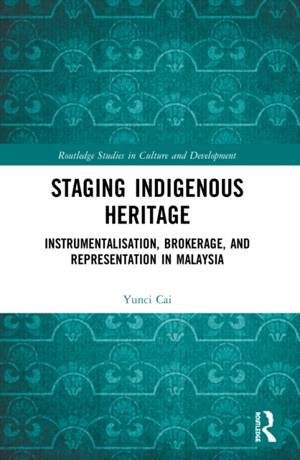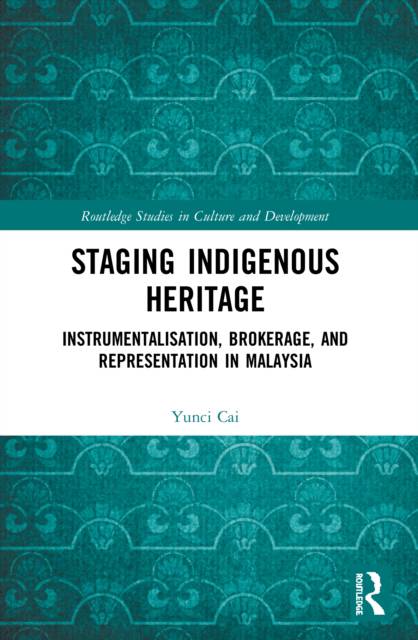
- Retrait gratuit dans votre magasin Club
- 7.000.000 titres dans notre catalogue
- Payer en toute sécurité
- Toujours un magasin près de chez vous
- Retrait gratuit dans votre magasin Club
- 7.000.0000 titres dans notre catalogue
- Payer en toute sécurité
- Toujours un magasin près de chez vous
Staging Indigenous Heritage
Instrumentalisation, Brokerage, and Representation in Malaysia
Yunci CaiDescription
Staging Indigenous Heritage examines the cultural politics of four Indigenous cultural villages in Malaysia. Demonstrating that such villages are often beset with the politics of brokerage and representation, the book shows that this reinforces a culture of dependency on the brokers.
By critically examining the relationship between Indigenous tourism and development through the establishment of Indigenous cultural villages, the book addresses the complexities of adopting the 'culture for development' paradigm as a developmental strategy. Demonstrating that the opportunities for self-representation and self-determination can become entwined with the politics of brokerage and the contradictory dualism of culture, it becomes clear that this can both facilitate and compromise their intended outcomes. Challenging the simplistic conceptualisation of Indigenous communities as harmonious and unified wholes, the book shows how Indigenous cultures are actively forged, struggled over, and negotiated in contemporary Malaysia.
Confronting the largely positive rhetoric in current discourses on the benefits of community-based cultural projects, Staging Indigenous Heritage should be essential reading for academics and students in the fields of museum studies, cultural heritage studies, Indigenous studies, development studies, tourism, anthropology, and geography. The book should also be of interest to museum and heritage professionals around the world.
Spécifications
Parties prenantes
- Auteur(s) :
- Editeur:
Contenu
- Nombre de pages :
- 244
- Langue:
- Anglais
- Collection :
Caractéristiques
- EAN:
- 9780367536916
- Date de parution :
- 29-04-22
- Format:
- Livre broché
- Format numérique:
- Trade paperback (VS)
- Dimensions :
- 155 mm x 234 mm
- Poids :
- 226 g

Les avis
Nous publions uniquement les avis qui respectent les conditions requises. Consultez nos conditions pour les avis.






